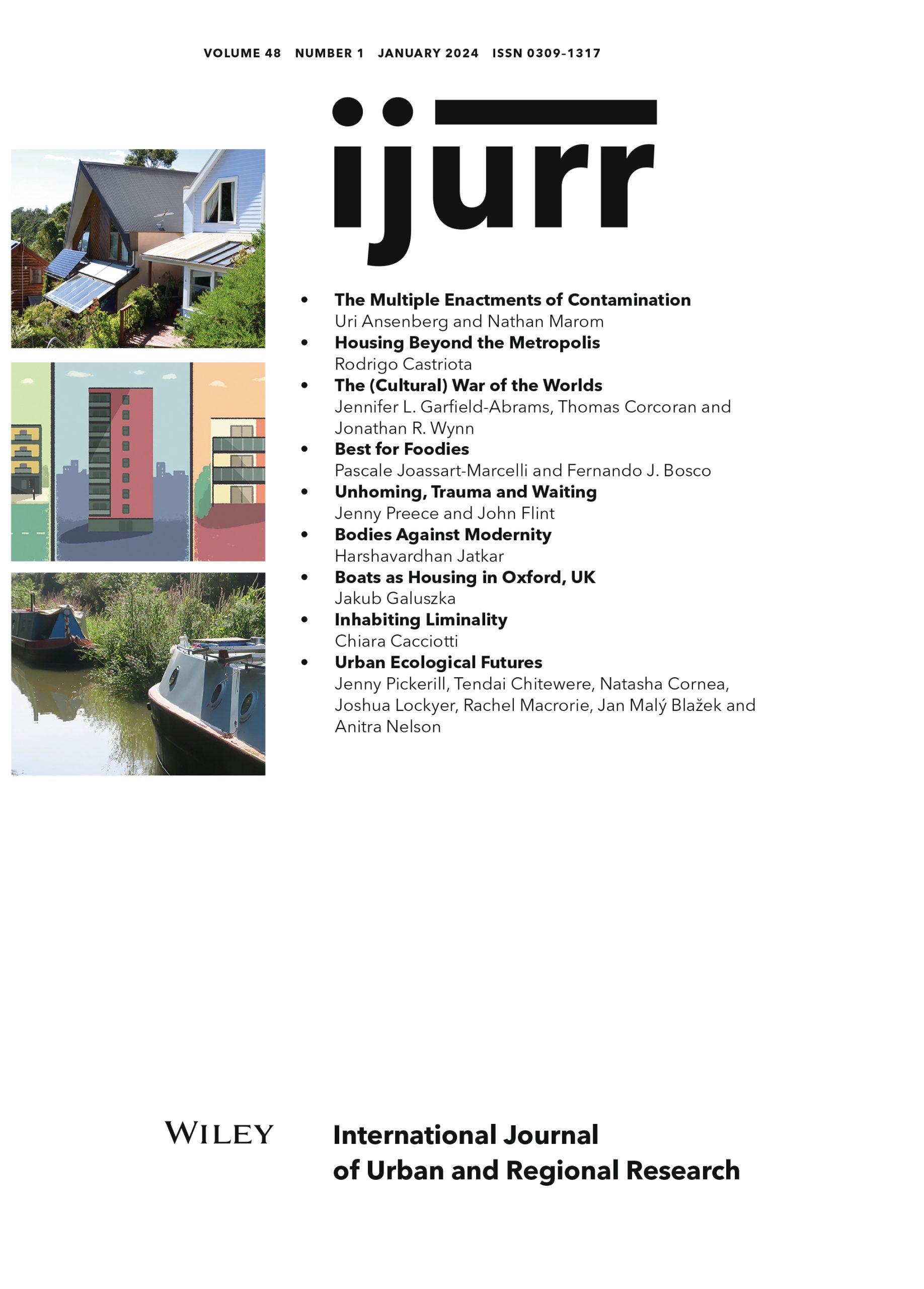
The IJURR Foundation (previously FURS) part-funded the PhD research I had undertaken in Urban Studies between the years 2001 and 2004 at the University of Kent. My PhD was subsequently published as a book – Beyond the Resources of Poverty: Gecekondu Living in the Turkish Capital. The most important contribution of the Foundation to my academic life was however neither the completion nor publication of my PhD research. The IJURR Foundation presented me with an opportunity to be supervised by one of the most powerful minds I have ever met in my fairly long academic life – Professor Chris Pickvance, who have recently passed away. My latest book on which this blog is based is a dedication to his intellectual standing, professionalism and kind and generous nature.
Many people move with the hope of earning a decent income to attain a better standard of living. But how far they benefit economically from their decision to migrate?
My latest research sheds rare insight into this question through unique comparisons of poverty status between three family generations of ‘settler’ migrants spanning multiple European destinations (including Austria, Belgium, Denmark, France, Germany, the Netherlands and Sweden) and their stayer and returnee counterparts based in Turkey.
The data is drawn from the pioneering 2000 Families Survey I conducted in collaboration with academics based in the UK, Germany and the Netherlands. The Survey generated the world’s largest database on guestworker movement to Europe through screening urban and rural parts of five Turkish regions, which witnessed high levels of outmigration in the years of 1960-1974. This period corresponds to a time when labourers (typically men) from Turkey were invited to contribute to the building of Northern and Western Europe. The Survey located the men who went and their counterparts who stayed behind and charted their families across Turkey and Europe up to the fourth generation.
Based on this unique dataset, my research identified the income poor by setting country thresholds at 60% of the median disposable household income (adjusted for household size). Findings reveal that a four-fifth (79%) of the first-generation settlers were income-poor, compared with a third (33%) of stayers. By the third generation, around half (49%) of settlers were still poor, compared with just over a quarter (27%) of their stayer counterparts.
What is more, the settlers living in countries renowned for the generosity of their welfare states turned out to be among the most impoverished. Some of the highest overall poverty rates were observed in these countries including Belgium (52%), Sweden (60%) and Denmark (64%).
Findings also show that whilst more than a third (37%) of stayers from the third generation went on to complete higher education, this applied to less than a quarter (23%) of their settler counterparts. Moreover, having a university education turned out not to improve the settlers’ chances of escaping poverty as much as it did for the stayers.
The returnees, on the other hand, have fared economically much better than the settlers and on a par with, if not better than, the stayers. Less than a quarter of first and third generation returnees (23% and 24% respectively) experienced income poverty and 43% from the third generation attained a higher education qualification.
The results should not be interpreted as meaning that the decision to move to Europe was economically unbeneficial for the settlers as it remains unknown how impoverished they were prior to migration. Guest-workers are anecdotally known to be poorer than those who stayed behind at the time, and are likely to have made some economic gains from the buoyant European labour markets prior to the economic crisis of 1973. The returnees’ economic successes are indeed supportive of such possibility.
Nor should the findings lead to the conclusion that if they do not earn enough in their new country, they should go back. Indeed, the initial results from another study I am currently undertaking suggest that there are aspects of migrant destinations that enhance the life satisfactions of even those who are monetarily impoverished and these may well to do with the orderliness of everyday life.
But even if there are some non-monetary benefits of staying in the country of destination, some fundamental questions remain to be answered: Primarily, why 79% of the first-generation settlers who contributed to the growth of Europe by taking on some of the dirtiest, hardest manual jobs are currently left to live in income poverty? And why are their children and grandchildren being allowed to fall so far behind in access to university education in contexts with more developed welfare states than Turkey? Moreover, why are the better educated settling for lower returns on their qualifications in more formalised European labour markets? One may also wonder why some of the highest poverty rates are observed in countries like Sweden with an anti-discrimination legislation top ranked by MIPEX (2011) for promoting equality of opportunity.
When considered in conjunction with the fact that more than half of Europeans do not welcome non-EU migrants from economically poorer countries (Blinder & Markaki 2018), the results begin to suggest that the answers may well lie in the operation of systemic racism without being detected or challenged. Thus, unless such structural issues are fundamentally addressed, it is unlikely that the prospects will improve substantially for the ‘unwanted’ migrants.
Dr Şebnem Eroğlu, School for Policy Studies, University of Bristol. [email protected]
